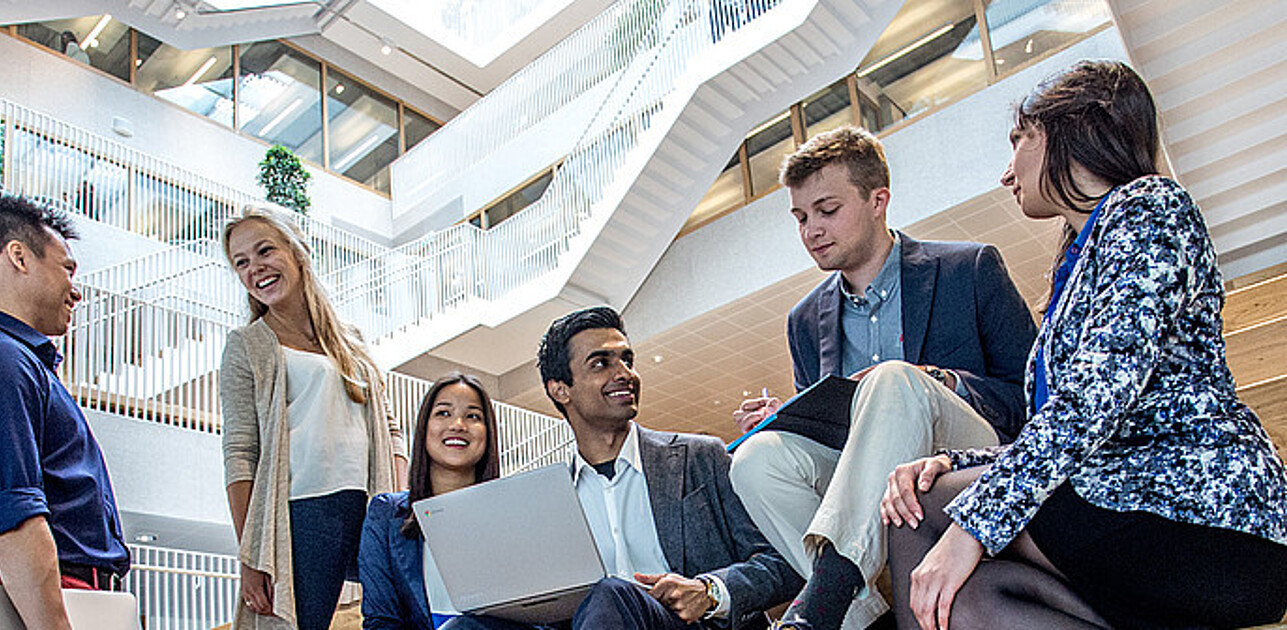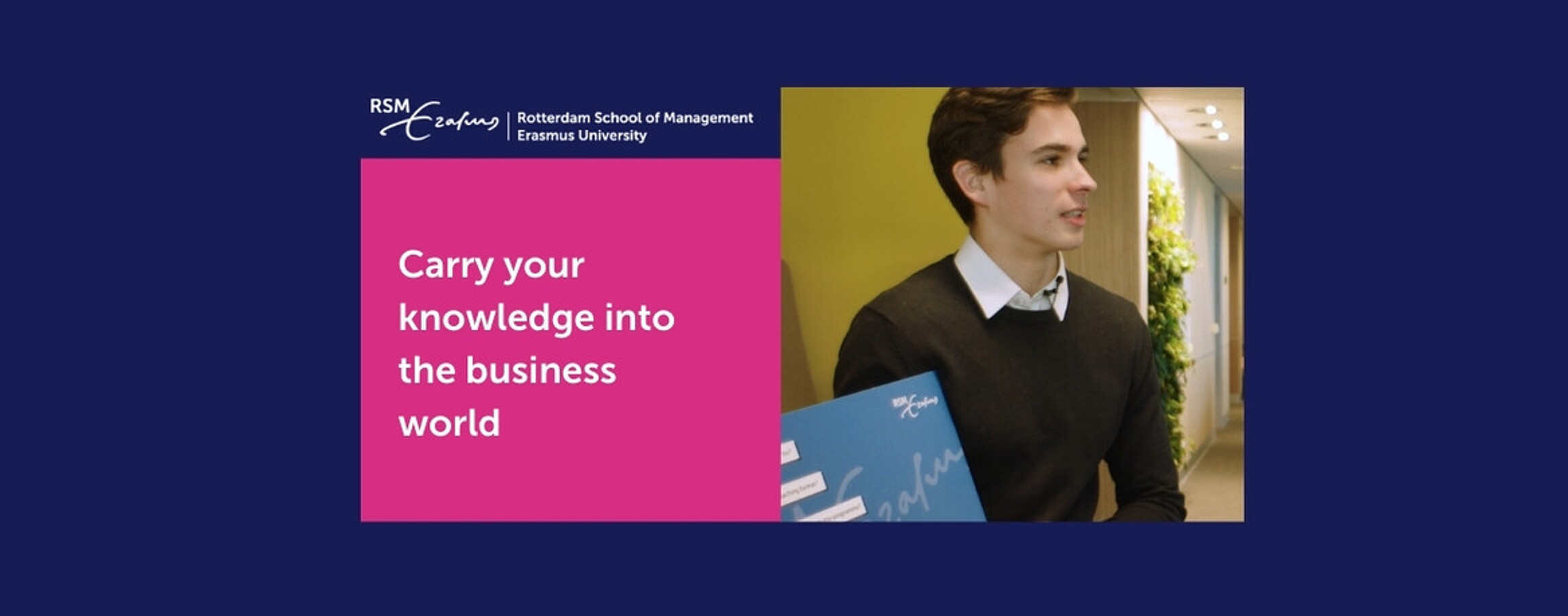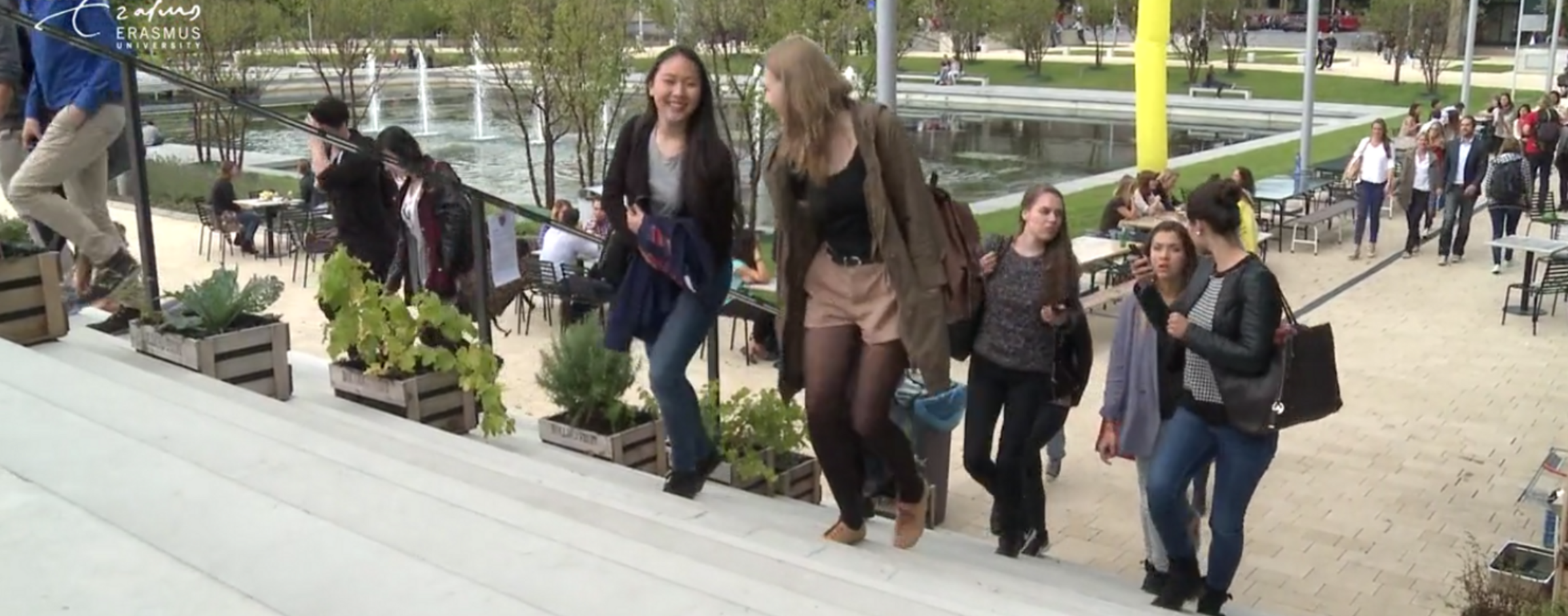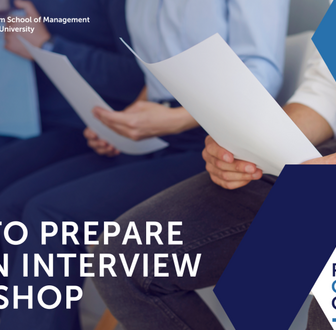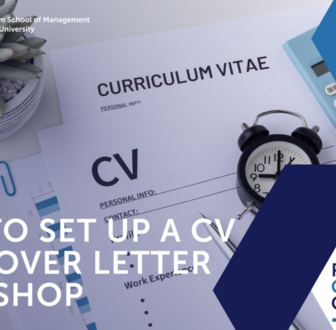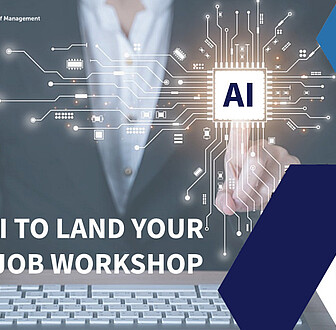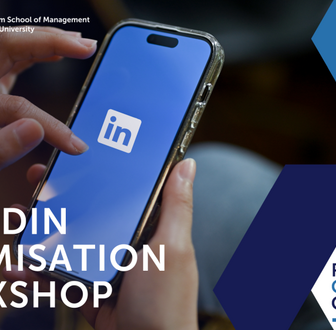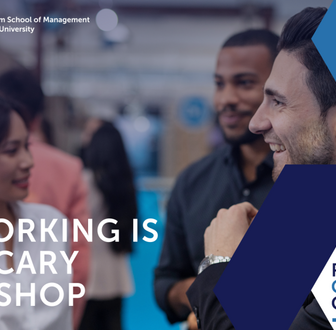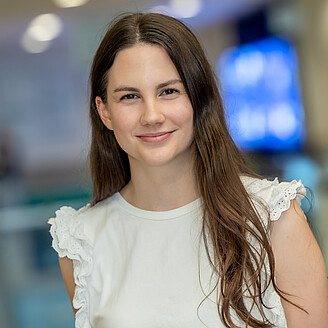Do you want to know more about the MScBA Master in Management programme?
The video below will answer the most frequently asked questions about the programme.
Overview
The Master in Management specialisation of the MSc in Business Administration is a 60 EC programme and has a duration of 12 months.
RSM is well known for its international outlook and innovative research, with dedicated faculty in seven research departments and numerous interdisciplinary centers working together to explore common research themes.
In the Master in Management you follow core courses in autumn and spring, providing you with comprehensive and state-of-the-art knowledge and perspectives in the field of business administration.
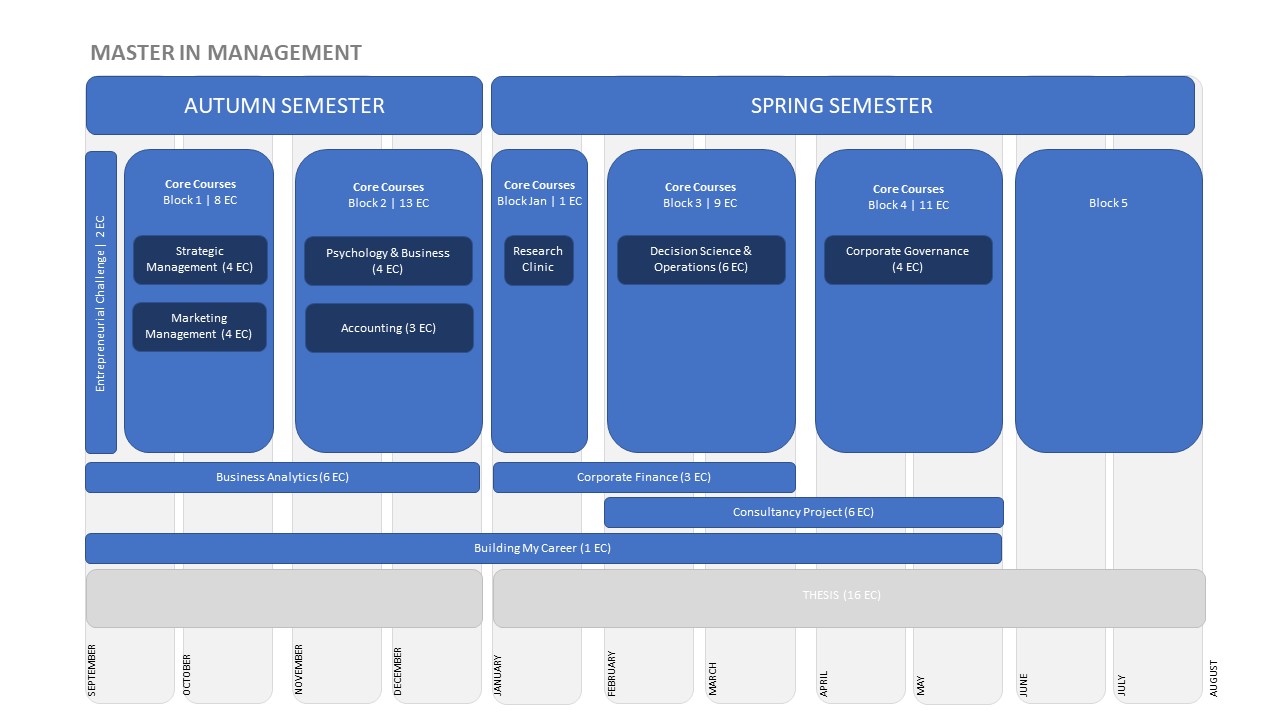
After that exciting start, the programme introduces you to the various areas of businesses through well-structured lectures, taught by experts in each field. In this first semester, your course topics include strategic management, marketing management, accounting, and psychology and organisations.
The autumn semester also starts off your training in academic analytical and problem-solving skills with a course on business analytics, refreshing and extending your knowledge and skills in research methods and data analytics. You will also engage with real-life business challenges and co-operate in diverse teams. You learn to appreciate and build on the diverse business and non-business backgrounds and experiences of classmates through group assignments and case studies.
View all autumn courses below:
During the second semester, students further build their business knowledge with courses on corporate finance, decision science and operations, and corporate governance.
Next to the comprehensive overview of the field of business administration, the programme continues your training in academic analytical and problem-solving skills with two important activities. First, you engage in an individual academic thesis trajectory offering you the possibility for a deep dive in one of the domains of business administration. Second, parallel to the thesis trajectory, you engage in a team-based consultancy project where you get to apply all that you learned in a real-life business with a team of fellow students.
View all spring courses below:
- Corporate Finance
- Research Clinic & Thesis Proposal
- Decision Science and Operations
- Consultancy Project
- Corporate Governance
- MiM Master Thesis
For a detailed description of all courses, please view the course catalogue (for reference only, catalogue continually updated throughout the year).
Learn more
You can get a taste of working life – from large multinationals to fast-growing start-ups – by applying your new wealth of knowledge to a real company problem during your internship, which is optional in your programme. The RSM Career Centre will support you in finding a suitable position. Many students acquire their first job after graduation from the contacts they make during their internship.
Explore the world and broaden your study experiences by going on international study trips and exchanges at other top schools. RSM has an extensive partner school network of more than 100 business schools and universities worldwide, including top business schools such as ESADE in Barcelona and The Wharton School in the USA. An international exchange is an optional element after you’ve studied for your master for at least one year.
Your advanced business and management knowledge, combined with your non-business bachelor degree, puts a long list of clear benefits onto your CV. Benefits which are also attractive to prospective employers.
Top RSM graduate employers last year were Deloitte, Accenture and ING. The biggest industries alumni work in are consulting, internet/web services/security, and business services. Most graduates become analysts, business developers and consultants.
You have demonstrated your ambition to use your bachelor discipline as a springboard into management. Your studies and the unique learning experience at RSM have given you knowledge of general business administration and demonstrated your aptitude for adapting to new situations.
With your newly gained international experience and interpersonal skills, you have developed your academic, managerial and social skills through real-life business cases and company assignments.
You have a thorough understanding of key issues faced by businesses, and your thesis shows that you have investigated one specific functional area in more detail, thus demonstrating an affinity for a future employer. There is also scope within the programme to emphasise certain functional areas of business. You can express an affinity for, for example, finance, marketing, logistics, or HR by carefully selecting your consultancy project, your thesis, or the opportunity for exchange study.
Curious to see what our alumni are doing?
Good to know
Non-EEA nationals who have earned a diploma from a higher education institute in the Netherlands can apply for a special residence permit called the orientation year after completing their studies. The 'Orientation Year for Graduates Seeking Employment' is a residence permit aimed at retaining foreign talent for the Dutch labour market. During this orientation year you are free to work without a work permit. Participants who find a job during this period can change their orientation year into a residence permit for Highly Skilled Migrants under more favourable terms.
For the most up-to-date information please visit the following website.
What's next after your studies? The RSM Career Centre is your guide for an impactful career. Its expertise in the labour market, personal branding and connections with employers will prepare you for your business career. Get ready for some exciting job fairs, workshops, speed interviews and coaching. You may land your first internship or job before you even graduate!
You’re a member of the RSM community from Day 1. After you graduate, you’ll also be a member of the RSM alumni network. The countless benefits include networking events worldwide with local chapters, lifelong learning and professional development, mentoring opportunities and access to the latest business knowledge and research. Your study at RSM is the first step towards being part of this inspiring community that you’ll be part of forever.
Talk to our current students!
The 2025-2026 tuition fee for the MSc programmes is approximately €24,600 for non-EEA students. The Dutch government contributes towards this cost for students who hold a nationality from a country belonging to the European Economic Area(EEA). These students therefore only pay the statutory fee €2,601 in 2025-2026.
For EEA nationals who have already completed a master in the Netherlands (and obtained the diploma) the tuition fee for a 2nd master is approximately €14,400.
Please note that all these tuition fee tariffs are subject to change.
There are other costs associated with the Master programmes, for more information please review the “Other expenses” section below thoroughly.
Scholarships
The number of scholarships is limited and mainly merit based. If a scholarship covers only the tuition fees, be aware that you need to finance your own living expenses (rent, food and insurances) for the duration of your studies. RSM does not offer scholarships for the pre-master programme. We do however offer a maximum of 2 scholarships per academic year to RSM pre-master students enrolling in an MSc programme.
Rotterdam School of Management, Erasmus University (RSM) offers multiple scholarships to prospective students from non-EEA countries who are not entitled to pay the EEA tuition fee, provided their grades are considered ‘excellent’. RSM also offers one scholarship, the Erasmus Trustfonds Scholarship, to students from EEA countries.
Besides scholarships awarded by RSM, there are also scholarships awarded by the Dutch government or other organisations that are available if you meet certain criteria such as nationality, age, etc We have listed some of them below but we encourage you to use resources such as Grantfinder or the Scholarship Portal to find additional scholarships.
- StuNed
- G&D Europe Scholarship
- NN Future Matters Scholarship
- Russia: The Global Education Programme
- LPDP
- OKP
Scholarship tips
- Contact the Ministry for Higher Education in your home country to see whether there are scholarship options.
- We have virtual information session covering all you need to know about scholarships and financial aid. Watch it here.
For students from the Netherlands or the EU/EEA, it may be possible to apply for limited funding towards payment of your tuition fees. Find out whether you meet the nationality and age requirements and read more information about the application process here.
IM/CEMS is a program that - if you are still eligible - entitles you to a maximum of 1 year's use of your DUO entitlements. Students who have received a basic grant and possibly a supplementary grant from DUO in the first year of IM/CEMS and meet the following additional conditions may be eligible for an additional half year (6 months) of financial support, which is equal to the grant received in the last month during the program. Please contact the student counselors for more information.
Conditions Financial Support Fund
Students eligible for financial support due to extended master programmes are those who:
a) are enrolled full-time in a public funded Erasmus University Rotterdam degree programme, which is extended on the base of article 7.4, paragraph 8 of the Dutch Higher Education and Research Act;
b) are enrolled as first enrollment (hoofdinschrijving) in the study programme as referred to under a, for which the student pays statutory tuition fee;
c) for this program, is or was entitled to study finance (prestatiebeurs hoger onderwijs) as referred to in the Wet Studiefinanciering 2000, and during the period corresponding to the study load that exceeds 60 ECs, and is no longer eligible for student finance in the form of an additional grant.
Other expenses
After having filled in all of the necessary application information on the Online Application Form (OLAF) and uploaded the required documents, applicants with a degree obtained outside the Netherlands will be asked to pay a non-refundable €100 handling fee. This fee can be paid online via the Erasmus Payment System which uses either iDEAL (for those with a Dutch bank account) or PayPal (which can be linked to any bank account or credit card worldwide). It is important that applicants complete the payment process as indicated, otherwise the system cannot register the payment.
The additional expenses in addition to tuition and general living costs (see below) vary per programme and may include:
- Study materials such as books, readers and business cases
- Costs involved in kick-off meetings
- Costs related to travel, international excursions and compulsory exchange semesters or internships abroad
Approximately € 300 - 500 (per year), these costs differ per programme.
For a reasonable standard of living in the Netherlands, you should have an income of between €1,235-€1,735 per month depending on your lifestyle. Further information about the costs of living in the Netherlands and related subjects can be found on this website. Below is an example of monthly expenditures:
| Furnished accommodation, including gas and electricity | € 500-1,000 |
| Medical insurance | € 50 |
| Telephone/internet | € 15-40 |
| Food | € 300 |
| Books, recreation, clothing | € 300 |
| Public Transportation | € 50 |
| Total | € average 1235 - 1735 |
| Other potential expenses: | |
| Buying or renting a bike | € 100 - 250 (per year) |
| In private residence (not student housing) yearly municipal and water taxes | € 100 - 300 (per year) |
| Study trip or other study related travel | € 300 - 500 (per year) |
Please ensure, prior to your arrival at RSM, that you have or will have sufficient funding available to finance your stay at RSM. Finding a part-time job, may be an option, but can not be guaranteed. You should therefore not rely on finding other ways to supplement your income during your studies. For additional information on obtaining a part-time job, visit the website of the Nuffic.
For EEA students there are no formal restrictions in finding work in the Netherlands, but students with a lack of Dutch language skills will find it difficult to secure employment. Non-EEA students are subject to labour regulations, which makes the likelihood of obtaining a work permit very small. We therefore ask students not to rely on this possibility. We do not encourage students to combine studies with the heavy workload from a part-time job.
This maximum for the September 2025 intake was reached on 19 December and the application for MScBA Master in Management is currently CLOSED. The application for the 2026 intake will open on 1 October 2025. This is a capped programme, which means that the maximum number of applications we accept is 255 (subject to change).
Find out everything you need to know about entry visas & residence permits for non-EU or EEA students at RSM.
Finding housing in Rotterdam can be tricky. To help you in your search for housing, we have compiled some helpful resources
